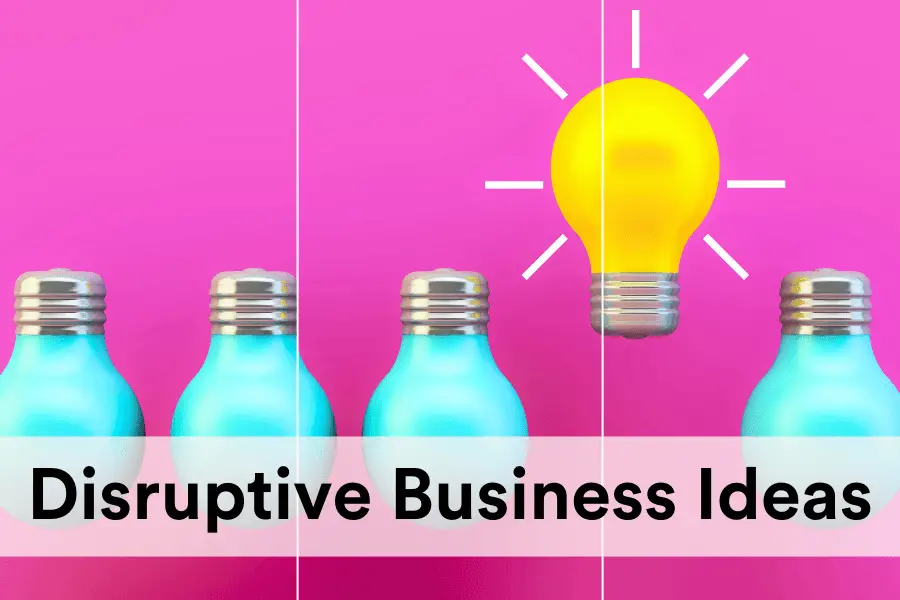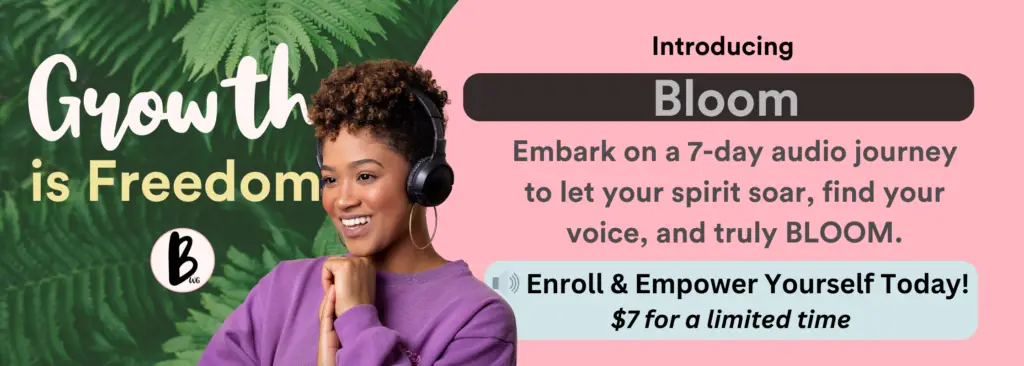Disruptive business ideas hold the power to transform industries, challenge traditional business models, and drive innovation. As a business enthusiast, I am constantly intrigued by the potential of disruptive businesses to shake up the status quo and create new market opportunities. In this post, we’ll talk about the impact of disruptive business ideas, uncover examples of successful disruptive brands, and explore different types of disruptive business models.

Table of Contents
What is a Disruptive Business Idea?

A disruptive business idea is a concept or innovation that creates a significant shift in an industry, often challenging existing business models and market norms. These ideas typically introduce new technologies, processes, or business strategies that redefine how products or services are delivered to consumers. Disruptive business ideas have the potential to revolutionize entire industries, create new market segments, and drive substantial growth for businesses that successfully implement them.
What is an Example of a Disruption in Business?
One of the most iconic examples of business disruption is the rise of streaming services like Netflix. By offering a more convenient and affordable alternative to traditional cable TV, Netflix revolutionized the way people consume entertainment. The streaming service disrupted the entire media industry, leading to a decline in traditional TV viewership and challenging established entertainment giants.
What is an Example of a Disruptive Brand?

Tesla Motors is a prime example of a disruptive brand that has revolutionized the automotive industry. By spearheading the mass adoption of electric vehicles and innovative autonomous driving technologies, Tesla disrupted the traditional automotive market dominated by gasoline-powered vehicles. The brand’s emphasis on sustainability, cutting-edge technology, and direct-to-consumer sales has set it apart as a disruptive force in the automotive industry.
Types of Disruptive Business Models
1. Direct-to-Consumer (DTC) Model: Companies like Warby Parker and Dollar Shave Club have disrupted traditional retail by selling their products directly to consumers online, cutting out middlemen and offering lower prices.
2. Subscription-Based Model: Businesses like Spotify and Amazon Prime have disrupted their respective industries by offering subscription-based services that provide continuous value to customers and build long-term relationships.
3. Platform-Based Model: Platforms like Airbnb and Uber have disrupted the hospitality and transportation industries by connecting service providers directly with consumers, creating new marketplaces and revenue streams.
4. Innovative Technology Model: Companies like Airbnb and Uber have disrupted their industries by leveraging innovative technologies such as artificial intelligence, blockchain, and the Internet of Things to create new value propositions for customers.
5. Sharing Economy Model: Businesses like Airbnb and Lyft have disrupted traditional business models by enabling individuals to share or rent out their assets (such as homes or cars) to others, creating new economic opportunities and changing the way people think about ownership.
Related Post: Redefining the Future: Top 7 Disruptive Business Models Transforming the Industry

Examples of Disruptive Business Ideas

1. Airbnb – By transforming the hospitality industry and empowering individuals to monetize their spare space, Airbnb disrupted the traditional hotel and accommodation sector.
2. Uber – Through its innovative ride-sharing platform, Uber disrupted the transportation industry by providing a convenient and cost-effective alternative to traditional taxis.
3. Warby Parker – By selling affordable, stylish eyewear directly to consumers online, Warby Parker disrupted the traditional eyewear industry dominated by high-priced designer brands.
4. SpaceX – Elon Musk’s aerospace company SpaceX disrupted the space industry by developing reusable rocket technology, significantly reducing the cost of space travel.
5. Beyond Meat – By creating plant-based meat alternatives that taste and look like real meat, Beyond Meat disrupted the food industry and catered to the growing demand for sustainable and ethical food options.
In conclusion, disruptive business ideas are powerful catalysts for industry transformation, challenging traditional business models and sparking innovation. By examining their impact, showcasing successful brands, and exploring various disruptive business models, we’ve highlighted how these ideas can revolutionize markets and create new opportunities.
Embracing such innovation is essential for staying ahead in today’s dynamic business environment. So, let’s continue to think outside the box, harness the power of disruptive business ideas, and drive forward the future of industry. Your next great idea could be the one that reshapes the world!
This post was all about 5 Disruptive Business Ideas Revolutionizing Industries

